Mahalo for commenting and coming back. Firstly, the Church, the Body of Christ, has history, meaning there were other Christians and the was a Church between your time and Jesus. The followers of Christ were known as followers of The Way (Acts 24:14) before finally being called Christians in
![]() Catholic, from the Greek word meaning universal, is actually an attribute of Christ’s Church. It’s one of the Four Marks of Christ’s
Catholic, from the Greek word meaning universal, is actually an attribute of Christ’s Church. It’s one of the Four Marks of Christ’s
 Over the years, various people have broken away from Christ’s Catholic Church. Even in New Testament times, there were followers such those of as Nicolaites named in Rev 2:15. These groups bear the names of their founders (such as the Lutherans or Calvinists), their peculiar practices (such as the Methodists and the Baptists) their geographic location or nationality (such as the Anglicans), their form of government (such as the Presbyterians and Episcopalians) and what not. Some call their newly minted foundation the
Over the years, various people have broken away from Christ’s Catholic Church. Even in New Testament times, there were followers such those of as Nicolaites named in Rev 2:15. These groups bear the names of their founders (such as the Lutherans or Calvinists), their peculiar practices (such as the Methodists and the Baptists) their geographic location or nationality (such as the Anglicans), their form of government (such as the Presbyterians and Episcopalians) and what not. Some call their newly minted foundation the
 The closest group to the Catholic Church are those Churches known as the Oriental Orthodox or Eastern Orthodox Churches which separated themselves from the Catholic Church very early on starting from the Council of Chalcedon in 451 and the Schism of 1054 respectively. Though some, like the Oriental Orthodox, which have been separated from the Catholic Church over Christological issues for more than 1500 years, still maintain the three-fold ministry of bishop, priest and deacon, have a great veneration of the Blessed Virgin, believe in the Real Presence of Christ in the Eucharist, call their priests father, use images and icons in their worship and acknowledge the primacy of the Bishop of Rome amongst all the Bishops. This testifies to the great antiquity of certain practices that come under criticism.
The closest group to the Catholic Church are those Churches known as the Oriental Orthodox or Eastern Orthodox Churches which separated themselves from the Catholic Church very early on starting from the Council of Chalcedon in 451 and the Schism of 1054 respectively. Though some, like the Oriental Orthodox, which have been separated from the Catholic Church over Christological issues for more than 1500 years, still maintain the three-fold ministry of bishop, priest and deacon, have a great veneration of the Blessed Virgin, believe in the Real Presence of Christ in the Eucharist, call their priests father, use images and icons in their worship and acknowledge the primacy of the Bishop of Rome amongst all the Bishops. This testifies to the great antiquity of certain practices that come under criticism.
And then, there are some from the free churches, the spiritual descendants of the Protestant groups above who broke away from the Catholic Church. Because of their protests against the Church, they were called Protestants. This is a historical fact. Within this group, a sub-species arose, the non-denominational denomination. But it’s a denomination nonetheless.
One cannot just found a Church based on a manual, no matter how inspired and say ‘Hey, we’re Christ’s Church.’ It just doesn’t work like that, for obvious reasons, one being authority, and remembering Christ founded His own Church (singular). He most certainly did not say to people down to centuries to found their own churches and dissent from the Church he founded. The Church is the Bride of Christ. What would you call a Bridegroom with many brides?
![[Unam Sanctam]](https://blogger.googleusercontent.com/img/b/R29vZ2xl/AVvXsEiymQ2adTjpZ1ABhPBbBBquiPCxeQrc4Jy_97vOikT0wGQeJleriiXQy6ebnb0jrYe-TfvcK77txStB4aIwVAdD41ZdMkVfNtFGC0JX6LBV9B8mfeRZaIAM7Sj-011ag3DiKQzv/s1600/headerdivinemercy.jpg)













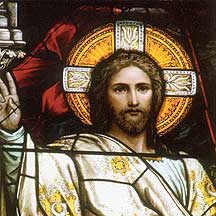







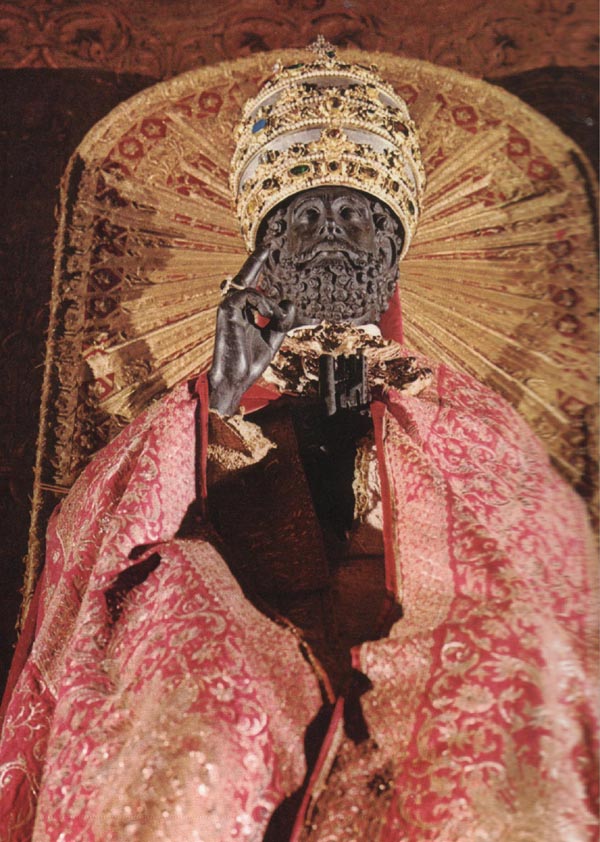
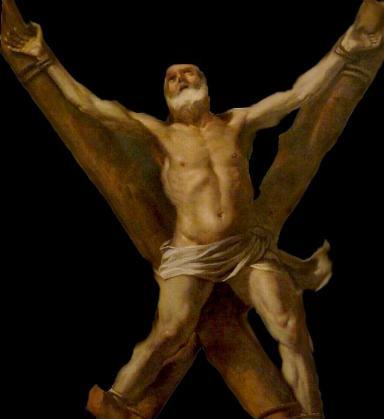




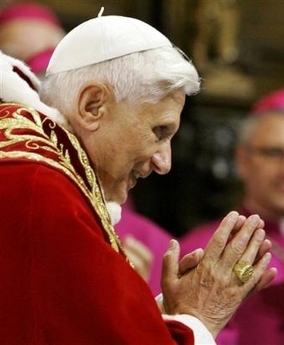






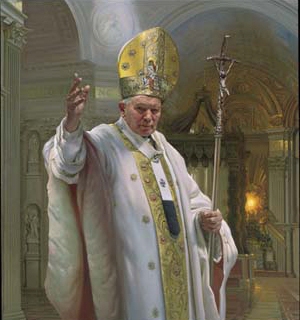
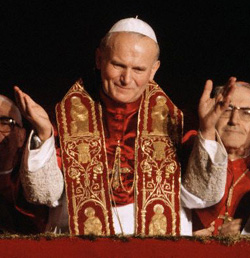
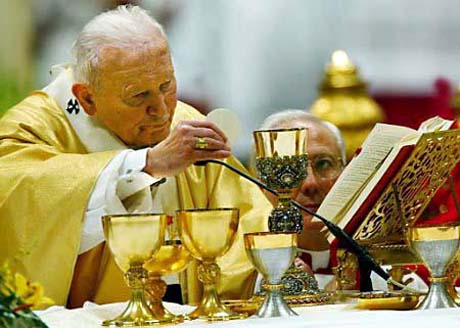







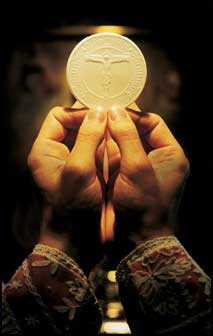
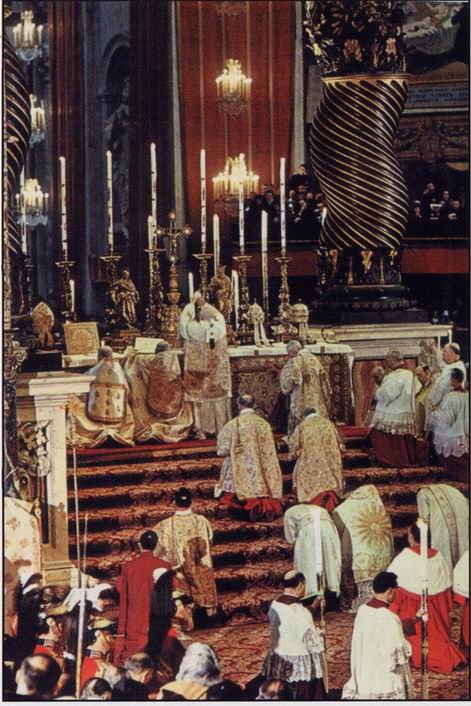

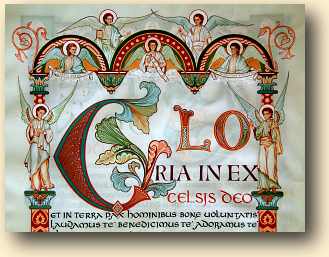

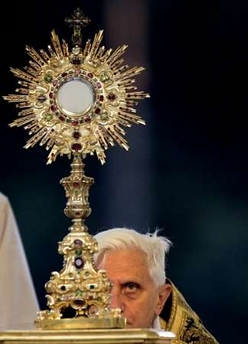


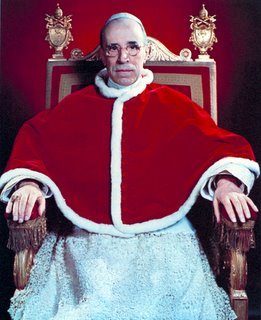




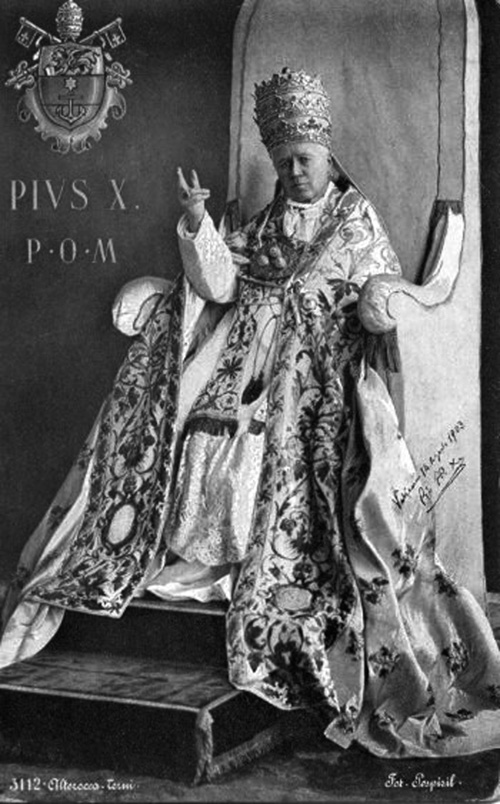



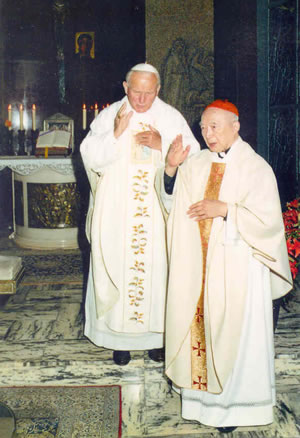






6 comments:
Unus Christianus - nullus Christianus.
One Christian - no Christian.
Quoting a website that had something to say on the matter: "But to experience this reality the Orthodox Christian is compelled to join in the corporate worship of the Church culminating in the celebration of the Eucharist. It is not unusual for Christians to think that following Christ is a private affair. American individualism certainly supports this understanding. Yet, Christianity is an ecclesial and therefore a communal reality."
Hi,
You left a series of comment on my blog, so I decided to check out yours.
I think that it is interesting that you did not really specify what is the "identifying Marks" of the Church. Of course, if Apostolic Succession is the true mark of an apostolic church, along with the three-fold office of Bishop, Priest and Deacon, then I look forward to your recognition of the Anglican Orders then. :)
In any case, I am not so sure exactly what must a Church have to be truly considered "Apostolic". I read with much curiousity the remarks of Tertullian as he was countering the heretics by pointing out that their teachings cannot be traced back to the apostles or apostolic men says,
"For their [the heretic's] very doctrine, after comparison with that of the apostles, will declare, by its own diversity and contrariety, that it had for its author neither an apostle nor an apostolic man; because, as the apostles would never have taught things which were self-contradictory, so the apostolic men would not have inculcated teaching different from the apostles, unless they who received their instruction from the apostles went and preached in a contrary manner. To this test, therefore will they be submitted for proof by those churches, who, although they derive not their founder from apostles or apostolic men (as being of much later date, for they are in fact being founded daily), yet, since they agree in the same faith, they are accounted as not less apostolic because they are akin in doctrine."
Tertullian, The Prescription Against Heretics
Thus, according to Tertullian, even churches who "derive not their founder from apostles or apostolic men" are still to be "accounted as not less apostolic because they are akin in doctrine". Thus, as long as the church has the same doctrines or teachings as the apostles or apostolic men, they are to be counted as no less apostolic.
So, it seems that the idea of the Church Apostolic as being linked to the idea of Apostolic Succession is a later develop and there seems to be a prima facie case from tradition that Apostolic Succession is not really necessary for a church to be considered Apostolic.
I also find your constant reference to the "Catholic Church", as opposed to "ROMAN Catholic Church" to be interesting. Could it be that to be in communion with the Successor of the Chair of St. Peter or the Roman Pontiff may not really be necessary for one to be considered Catholic after all? I'm sure you know that the Primacy of Peter is again another later developed and previous councils and yes, even Popes have denied the Primacy of Peter.
So all in all, I would be interested in what you would consider to be the true marks of the Church Catholic
Dear Inquisitor. This post was in response to a fundy-Prot and was a necessarily brief outline of denominationalism.
As for the identifying Marks of the Church, if you peruse para 4, you'll note that they are all listed and briefly explained.
As for the recognition of Anglican orders (including the orders or Gene Robinson and the various women bishops, priests and deacons who are in communio in sacris with the Archbishop of Canterbury?), I'm bound by the teaching of Leo XIII in Apostolicae Curae as you know.
Besides, the appeal to "same doctrines or teachings as the apostles or apostolic men" would immediately exclude the Anglican Communion (including the Anglo-Catholic and Puritan low-Church shoot amongts others).
You may find these non-Apostolic teachings in several of the 39 Articles such as XXVII and XXIX which deny the Real Presence as an objective fact and makes it subsidiary to a person's faith, etc.
On the development of doctrine, your good friend and mine, John Henry Cardinal Newman has said it better than I ever can.
And of course, finally, the Catholic Church is just that, in Her own self understanding. The appelation Roman Catholic is derived from those Anglicans who wish to subscribe to the branch theory that their own foundation is part of the Catholic Church. Of course, the Catholic Church has always denied this and retains her self identity as the Catholic Church in which the Church of Christ fully subsists.
Extra Ecclesiam, nulla salus.
Regarding your quotation of Tertullian. The Prescription makes a lot of Apostolicity and Apostolic Succession. In that quote, he's saying that those Churches, though not founded by an Apostle can be considered Apostolic because they share the same faith of the Apostolic Churches which were founded by Apostles or Apostolic men. I don't think that Tertullian is trying to refer to a static faith or fixed set of beliefs as such but a living faith as lived out in the Apostolic Churches.
This makes the local Church in Penang, for example (which we may include as one of those Churches being founded daily), a part of the One, Holy, Catholic and Apostolic Church because she shares the faith of the Church of Rome which was founded by the Apostles.
This makes more sense when the totality of Tertullian's Prescription is read together.
And may I ask which Pope denied the Primacy of St. Peter? Thanks.
The answer your last question :
A big(a)mist(ake!!!)
Post a Comment